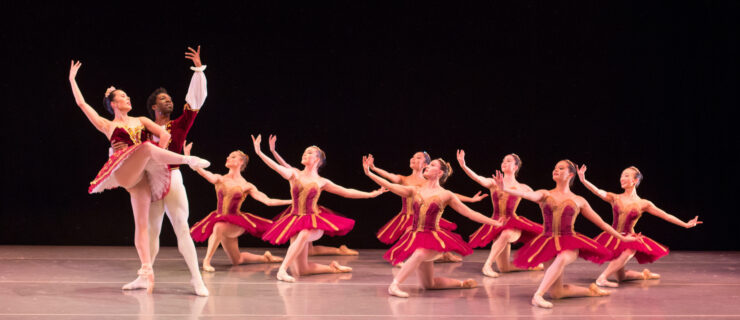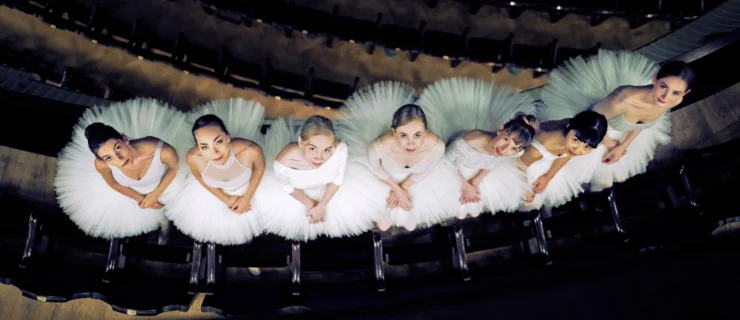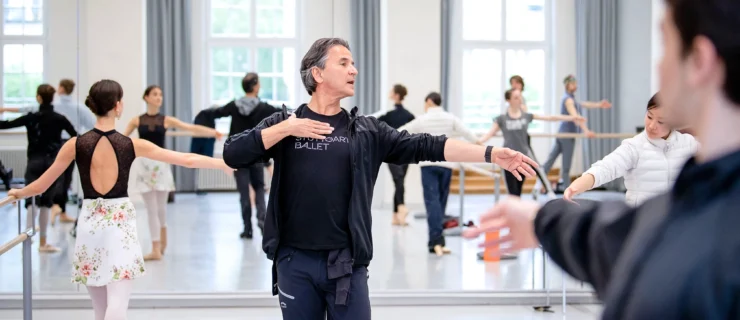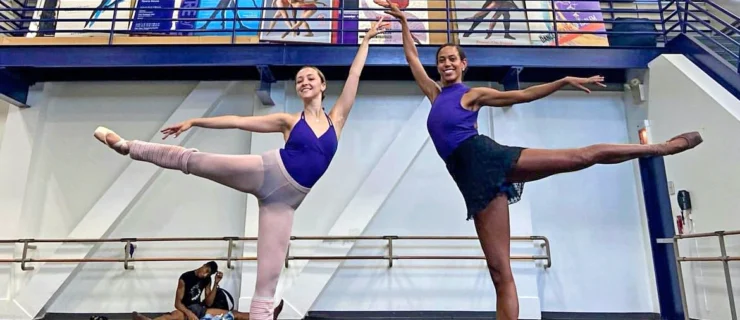Ask Amy
I’d like to pursue ballet, but my parents want me to go to college. Are there any trainee or apprentice programs that allow time for school? Or is there another way to work towards a degree while advancing my dance career?
—Karina
Yes and yes. Several companies have partnerships with local colleges. For instance, Richmond Ballet’s Trainee Program has teamed up with Virginia Commonwealth University, allowing dancers to apply their professional training towards a BFA in dance and choreography. Nashville Ballet 2 partners with Belmont University, where dancers can earn a BA or BS in Liberal Studies through a customized degree program with flexible schedules and a tuition discount. And at Atlanta Ballet, company members and fellowship students can earn credits for their professional experience at Kennesaw State University for a BA in dance. Call companies that interest you and ask if they offer anything similar.
Or you can enroll in college and seek opportunities from there. Ben Needham-Wood was offered an apprenticeship with Louisville Ballet after his sophomore year in The University of Cincinnati College-Conservatory of Music’s dance program, but was able to continue his education through online courses. “My apprenticeship was like an internship where I got credit for dancing hours,” he says. He is now both a full-fledged company member and college graduate. Other CCM students have received credit for traineeships with Cincinnati Ballet, Dayton Ballet and Kentucky Ballet Theatre.
You could also take classes part-time, especially if you want a non-dance degree. Most schools offer evening, weekend or online courses that fit into hectic rehearsal schedules.
Is it normal for a ballet dancer’s body to pop and crack? After class, my joints crack a lot, especially my toes, shoulders and knees. Should I be worried?
—Ines
Popping and cracking is very common for dancers. Every morning when I get out of bed, my hip makes a big thunk and my ankles crackle. Joints pop when gases are released in the lubricating synovial fluid inside the joint capsule. They also make noises when muscles or tendons roll over bony prominences.
According to Alison Deleget, MSATC, a certified athletic trainer at the Harkness Center for Dance Injuries at the NYU Hospital for Joint Diseases, you don’t need to worry as long as you’re not experiencing pain. “However, if it does cause pain, have a doctor look at it to find out what’s causing those pops,” she says.
Even if your popping joints don’t hurt, try not to voluntarily reproduce the noises. “Forcing the joint to go in a range of motion it doesn’t want to go in causes a little bit of trauma,” says Deleget. “If you make the joints pop, you’re producing more wear and tear. You can end up with an irritation or inflammation of the tissue, which can lead to injury.”
I’m currently apprenticing with a good company, and my contract is up in a few months. But I’ve only gotten to perform a handful of times in the corps. I feel I haven’t been able to prove my talent yet. What can I do to increase my chances of getting hired?
—Sarah
You need to demonstrate that you are a vital, committed asset to the company. If you’re not getting opportunities onstage, then use your time in the studio to show that you deserve that promotion. One way to impress a director is through expert understudying. Practice full-out in the back (but do not get in the way of the dancers you’re understudying), and make sure you know several parts. If you can, go to rehearsals you’re not called for, just to sit and watch. Injuries happen, roles get shifted around, and before you know it you might be on! Jumping in seamlessly shows that you’re reliable, smart and great under pressure.
Show your commitment in class, too. Don’t be tempted to leave early, sit down, wear junk or modify combinations you don’t like. Stand where you can be seen—although, again, don’t cut off a principal when you’re going across the floor!
Even if you don’t get that promotion, an exemplary work ethic will increase your chances of getting a good recommendation from your director. And don’t get discouraged. You have two great things going for you: You’re young and you already have professional experience.




